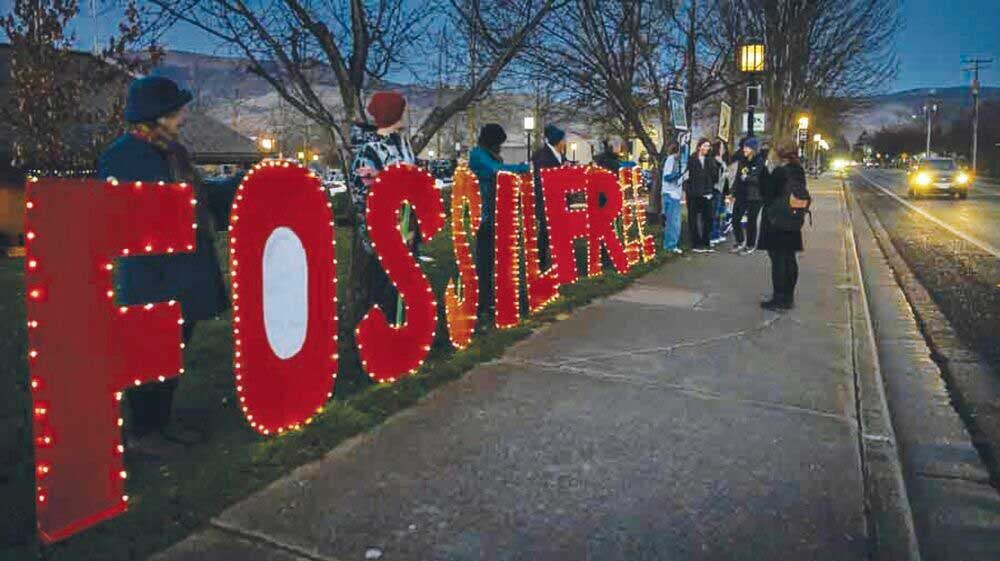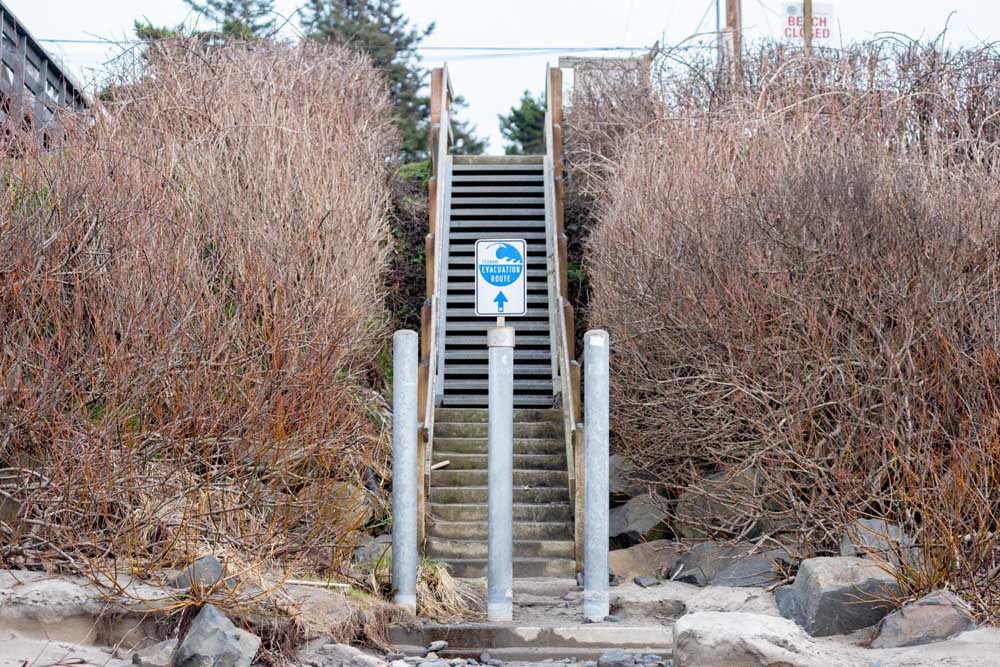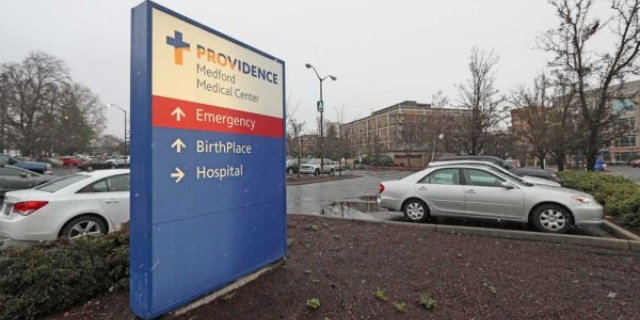Ashland approves pollution fee to cut down on new natural gas hookups
Published 3:26 pm Wednesday, February 19, 2025

- Ashland Youth for Electrification rallied before Tuesday’s City Council meeting in support of an ordinance that would make it more expensive to use gas appliances in new construction in the city.
Proponents of using electricity instead of natural gas in Oregon have just scored a new victory.
The Ashland City Council on Tuesday voted unanimously to charge developers a carbon pollution fee for installing natural gas heating systems in new residential buildings.
Trending
Youth advocates who championed the measure and city officials said it’s an effort to reduce greenhouse gas emissions, improve indoor air quality in the city and change how homes are built in Ashland.
“We recognized the climate crisis poses an existential threat to our community and to the globe and that we had a responsibility to do what we could in our community to tackle the causes of this crisis,” Ashland Mayor Tonya Graham told The Oregonian/OregonLive.
The ordinance – modeled on a similar one in Burlington, Vermont – is aimed at reducing the use of natural gas hookups and appliances, including furnaces, water heaters, stoves, clothes dryers and fireplaces, though the fee also would apply to energy systems that rely on coal, oil, propane or kerosene.
Ashland’s ordinance is the first in Oregon since Eugene passed a measure two years ago that would have prohibited natural gas hookups in many new homes. Eugene later rescinded its measure after a federal appeals court ruling rejected a similar gas ban in Berkeley, California.
Since then, several cities in Oregon that have adopted climate action plans – including Ashland, Milwaukie and Corvallis – have been looking to ban natural gas and provide incentives to use electricity in new construction, despite opposition from Oregon’s natural gas industry and the federal lawsuit filed in California.
Their efforts come on the heels of nearly 100 cities, towns and counties around the U.S. adopting restrictions on fossil fuels in new construction, though it’s unclear how many of those ordinances were set aside due to the California court decision. Instead of banning gas hookups, some jurisdictions have gone the route of updating building codes and requiring developers to meet energy performance and air-pollution standards.
Trending
“The Ashland ordinance is a great sign. So many communities across Oregon are hoping to hold their cities accountable for the climate goals they set. We hope this inspires them,” said Jess Grady-Benson, organizing director with Rogue Climate, a nonprofit based in southern Oregon and focused on transition to renewable energy. The group pushed for the Ashland ordinance.
The NW Coalition for Energy Choice – a group backed by the Northwest Gas Association, a gas industry trade association – opposed the ordinance as did local building trades unions and contractors who have said the energy grid isn’t ready to handle greater demand for electricity.
NW Natural could not be immediately reached for comment. Avista, which provides much of the natural gas service in Ashland, said it was disappointed in the carbon impact fee ordinance.
“While we recognize the good intentions of the City of Ashland to address concerns about climate change, this new impact fee will worsen housing inequity, increase the overall cost of housing, and add another potential financial barrier for individuals on the cusp of home ownership,” Avista spokesperson Jared Webley said in a statement. “We believe that our customers value energy choices and that natural gas plays an important role in reliability, resilience, and energy affordability for the region.”
The Ashland carbon fee, assessed for each dwelling unit in a building and due upon the issuance of the building permit, will be calculated using the social cost of greenhouse gases, a monetary value assigned to climate change damages resulting from the emission of one metric ton of greenhouse gases. That value was published by the U.S. Environmental Protection Agency.
To calculate the fee, the social cost of greenhouse gases will be multiplied by the metric tons of carbon for the specific appliance and the expected lifetime of an appliance. It will cost developers $4,118.40 to install a gas furnace, $1,289.60 to install a gas hot water heater, $728 for a gas fireplace, $374.40 for a gas stove and $145.60 for a gas clothes dryer. The fee will be adjusted annually by the percentage increase in the Consumer Price Index.
Propane grills, patio heaters and other energy sources designed to be exclusively used outside will be exempt, as are wood fireplaces.
The ordinance includes a requirement for natural gas companies operating in the city’s right of way to submit an annual report detailing total residential and commercial natural gas consumption. For metered services, the report must include the total number of operational meters, separated into residential and commercial accounts.
To pass the ordinance, youths in Ashland organized rallies, gathered hundreds of testimonies and signatures from residents and joined the city’s Climate and Energy Policy Advisory Committee to work on the measure.
The city also hired a lawyer to come up with an ordinance that could stand legal muster in court, Graham said.
“A lot of the conversation that is being had around this ordinance is about legal risk, but the risk we need to keep our eye on is the risk that the climate crisis poses to our children’s future,” Graham said. “That is what motivated the City of Ashland to pass this ordinance.”
The Ashland ordinance goes into effect Jan. 1, 2026.








